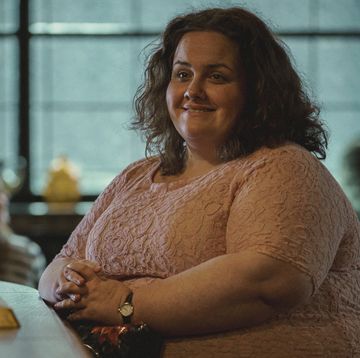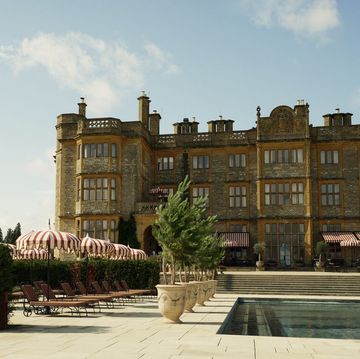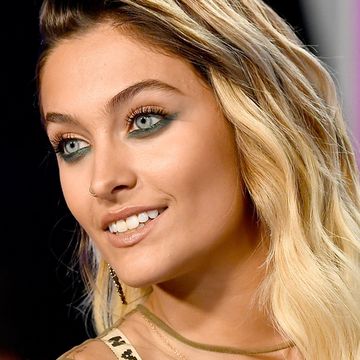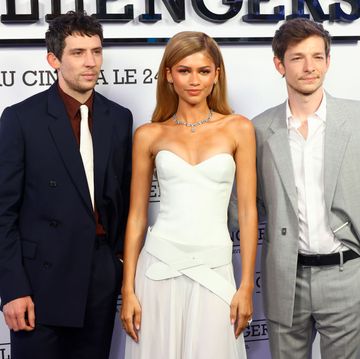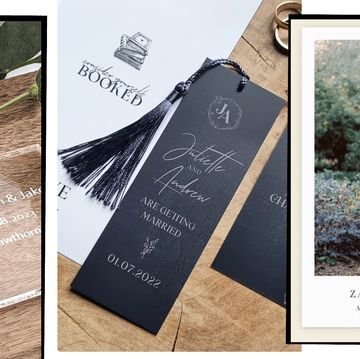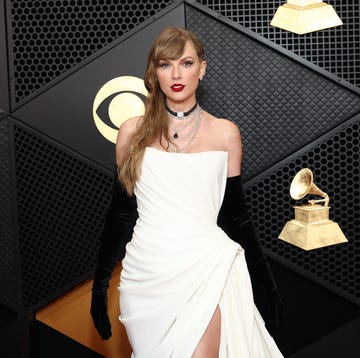Lovely. It's a pretty little word isn't it? Two delightful syllables, prancing across the page like a glittery pink pony. Unchallenging. Sweet. A useful filler when you can't think of much else to say. Nice. Unthreatening. If lovely were an item of food, it would be a cupcake.
But, like cupcakes, it can also be nauseating. It can stick in your throat. It can make you really fucking furious if all you actually want is a massive, full-size cake. Or not a cake at all, but a baked potato. With cheese.
Lovely - like cupcakes, pink ponies and glitter - is a concept overwhelmingly associated with the female of the species. Women are lovely. Men? Well, men are hardly ever described as such.
This enrages me because it's demeaning. It implies a woman's role is to be people-pleasing and unchallenging and demure, to smile winningly and be polite. Men are allowed to be aggressive and powerful and to say what they think but, as females, we are most rewarded when we are
pliant and agreeable.
So imagine my glee when the author Sadie Jones took to Twitter this week to condemn the word. Sadie, an award-winning writer who has sold several hundred thousand books and whose work has been translated into 23 languages, had agreed to do a live web chat for an online book
group. She was introduced as “the lovely Sadie Jones”.
I have no doubt that it was a well-meaning description. But can you imagine the same word being applied to Philip Roth or Jonathan Franzen? No. Why should Sadie's supposed loveliness be prized above all her other qualities or her considerable professional success? Why should women constantly be put into situations where they are having to seek approval or make other people like them?
Being liked is not the same as being respected. The danger in wanting to please is that you end up not saying what you mean. You censor the things that might be difficult for others to hear. Being lovely at the cost of being yourself is an act of self-sabotage. And being lovely can go fuck itself.
As it turned out, Sadie wasn't particularly lovely during the webchat. By her own admission, she was “irascible”. She stood up for herself. When someone was mean about her latest novel, Fallout, she responded assertively. Afterwards, she told me she found it “liberating”.
In other words, it was OK to give a shit about a book she'd spent years crafting, writing and editing, and not to worry about whether she was being nice enough to the people who didn't like it or – by extension – who might not like her. It was OK to stand her ground. It was OK not to underplay her own self-belief.
This is not about being rude. This is about being honest and believing we are worth the space we occupy. This is about not apologising for our success or for knowing who we are.
On Twitter, the idea of being less lovely rapidly gained traction. Polly Vernon, author of Hot Feminist, put forward an alternative selection of adjectives, including “fiercely intelligent” and “foul-mouthed”. The author Charlotte Mendelson suggested starting a secret society of female subversion.
I like this idea. I think we should call ourselves The Anti-Lovelies. You're welcome to join. But there's something you should know before you sign up: we will not be serving cupcakes.
Elizabeth Day’s new novel, Paradise City, is out now, published by Bloomsbury.
Sadie Jones's new novel, Fallout, is also out now, published by Chatto & Windus





